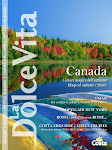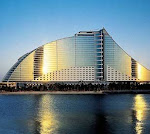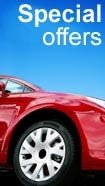We advise against all travel to the north east border areas (i.e. the districts of Kukes, Has and Tropoje) between Albania and Kosovo because of the risk of unexploded ordnance placed during the 1999 Kosovo crisis and the poor condition of the roads.
Although public security is generally good, particularly in Tirana, crime and violence still represent a serious problem in some areas. Gun ownership is widespread.
There is an underlying threat from international terrorism. Attacks, although unlikely, could be indiscriminate, including places frequented by expatriates and foreign travellers.
We strongly recommend that you obtain comprehensive travel and medical insurance before travelling to Albania. You should check any exclusions, and that your policy covers you for all the activities you want to undertake.
Local Travel
We advise against all travel to the north east Border areas (i.e. the districts of Kukes, Has and Tropoje) between Albania and Kosovo because of the risk of unexploded ordnance placed near the border during the 1999 Kosovo crisis and the poor condition of the roads (as is the condition of many rural roads around Albania). The area around Tirana, and most of the larger cities, are relatively trouble-free, but you should avoid travelling in the night.
On 15 March 2008, there was a major explosion at an ammunition depot in Gerdec, near Tirana and close to the main Tiaran-Durres motorway ( a section of which was temporarily closed). It is estimated that up to 100,000 tonnes of munitions remain stockpiled at depots throughout Albania. Until surplus, old and degraded munitions are dismantled, they will continue to present a safety risk in areas near such depots.
Road Travel
Driving can be very hazardous. Roads are poor, especially (but not only) in rural areas. In winter, mountain roads are snowy and icy. During hot spells, the tarmac can melt and become slippery. Flash flooding is possible throughout the year. You should stay alert for large, unmarked potholes. Street lighting in urban areas is subject to power cuts. Elsewhere, except on the major inter-urban arterial routes, there is no street lighting, so night travel is best avoided. We suggest using four-wheel drive vehicles in Albania. There is no national recovery system, so cars should be self-sufficient, carrying minor repair equipment including jack, spare wheel, fan belts, wiper blades, local phrase book, first aid kit, water and overnight food when in remote areas.
Drivers with foreign plated vehicles draw particular scrutiny from the Road Traffic Police. You should adhere to road traffic law at all times as committing even minor offences may result in you being fined.
Albanian driving can often be aggressive and erratic. Minor traffic disputes can quickly escalate, especially as some motorists are likely to be armed. If you intend to drive you are strongly advised to avoid reacting to provocative behaviour by other road users. If you are involved in a traffic accident, even a minor one, you are required to wait until the police arrive. This will usually happen quickly in built-up areas.
You should expect queues at all border crossings, especially at weekends and during the summer months.
Swimming
Albania does not have a blue flag operator, and there is no recognised similar system of assessment of beaches. However, several beaches along the Albanian coast are reported by the Albanian press to be polluted as a result of inadequate sewage disposal and treatment.
Sea Travel
There have been a number of instances of passenger boat sinkings, usually due to a lack of safety precautions and equipment. In March 2008 a boat capsized on Farka Lake (south of Tirana) killing a number of passengers.
Local laws and customs
Homosexuality is not illegal but is not yet accepted as a cultural norm. We also recommend discretion in relation to public displays of affection.
Penalties for drug related crimes are severe.
Passport validity
All travellers entering Albania must have at least six months' validity remaining on their passport. See your own Embassy for entry details.
Residence
A family seeking to take up residence must additionally provide notarised birth and marriage certificates to the local police authorities.
Entry tax
With effect from 25 November 2008 foreign nationals were no longer required to pay an entry tax.
Travelling with children
Single parents or other adults travelling alone with children should be aware that some countries require documentary evidence of parental responsibility before allowing lone parents to enter the country or, in some cases, before permitting the children to leave the country.
Health
There are high levels of Hepatitis in Albania. Rabies is also a matter of concern as there are large numbers of stray dogs, although the last reported case of the disease in Tirana was in 1978.
Cases of tick borne encephalitis have been reported in the north of the country. Vaccination is available you should keep all areas of your body covered when close to shrubs or bushes, and to inspect yourself regularly for ticks.
Drink only bottled water and UHT milk.
Insurance
We recommend that comprehensive travel and medical insurance is obtained before travelling to Albania, including evacuation by air ambulance. You should check any exclusions, and that your policy covers you for all the activities you want to undertake.
Money
Major credit/debit cards are accepted in most banks and international hotels. You may prefer to use cash as in the past foreigners have been victims of credit card fraud. There are numerous ATM machines in Tirana and main towns, as well as bureaux de change where Sterling, US Dollars and Euros are widely accepted for exchange. Although street money changers operate openly, they do so illegally. We therefore advise you to only use banks or established bureaux de change.














No comments:
Post a Comment